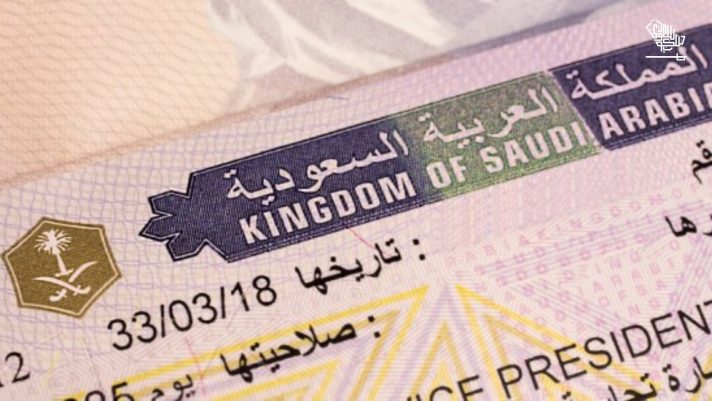As per reports till February 2023, the Saudi Arabian workforce consists of roughly 10.9 million foreign workers, making up 75 percent of the total workforce.
With the current scenario of Vision 2030, the demand for foreign workers has increased. Huge projects have been announced in Neom and also in Riyadh, such as New Murabba, etc.
For those of you who are researching to move to the Kingdom, you guys landed on the right page.
This guide covers the following information:
Table of contents
Working in Saudi Arabia
The ex-pat flight mentioned previously has come in the wake of the Saudi government’s efforts to diversify the country’s economy past oil and grow employment opportunities for locals.
As part of this drive, the Saudi government has raised the cost of living for foreign workers by adding an annual fee for their dependents. The government has also set limitations on the professions ex-pats can work at.
Work Permits in Saudi Arabia
To be employed in Saudi Arabia, you will require a residence permit (Iqama), which permits you to work and stay for a particular amount of time but not exceeding two years.
For the Saudi work visa, you will need a Saudi employer who is also the sponsor. The Saudi Ministry of Labor must approve the company that employs you to employ foreign nationals.
Obtaining a work visa is the first step of getting an Iqama; your employer needs to apply for this visa on your account, and once the visa is approved, you can enter the country and commence working.
Within 90 days of your arrival, your employer or organization must apply for a residence permit, including a work visa. The residence permit is the standard form of identification in Saudi Arabia; you will need this to open a bank account and any such activity.
Read: How to invest in the Saudi Arabia Stock Exchange?
You are advised to always carry your Iqama with you, as you can be fined if you fail to present your card when requested.
The Iqama is usually issued for a limited duration of one or two years, beyond which it will require to be renewed by your organization or employer.
Work Permit Features
An Iqama card includes the following features:
- Name
- Nationality
- Date of birth
- Job title and employer
- Iqama number
- Issue and expiry date
Different Types Of Work Permit In Saudi Arabia
If you are going to work in Saudi Arabia for a year or two, you certainly need an Iqama, but other options are available for those shorter stay needs.
Business Visa Visit
The Business Visit visa allows you to conduct business transactions in person with your Saudi counterparts.
This Business visa benefits people offering short-term services or needing quick transactions on the ground with their team or the associate company in Saudi Arabia.
This Visa category limits the type of work you can conduct during your visit to holding meetings.
Obtaining a business visit visa requires seven working days and a letter of invitation from a Saudi sponsor.
It costs $54 for a single entry stamp, $134 for a multiple entry stamp for U.S. citizens, or £49/£106 for the U.K.
Work Visit Visa
This visa allowed employees from foreign businesses to work temporarily in Saudi Arabia for 30 to 90 days.
However, in October 2019, the Saudi government suspended work visit visas and is working to introduce a new temporary work visa.
Ex-pats looking to conduct business activities beyond the permission of a business visa will need to get a residence permit.
Family Visas
It is permitted to register family members on your Iqama. However, as per the new rules introduced by the government in 2017, this has become considerably more expensive than in the past.
Foreign workers with family members living with them must pay a monthly levy for each dependent family member; the current levy is SAR 400.
Family members must obtain separate permission from the authorities before beginning work in Saudi Arabia.
Premium Residency Iqama
The premium residency Iqama, popularly known as the Saudi Arabia green card, gives foreigners permanent residence status and does not require a sponsor.
It costs SAR 800,000 or a yearly renewable residency Iqama at SAR 100,000 annually.
Applying For Your Work Permit
You must submit a range of documents with your employer dealing with the Iqama application process on your behalf. The documents required for submission are:
- Passport
- Two passport-sized photographs
- Two passport-sized photographs of the employer
- A certified letter from your employer/visa sponsor, certified by the Chamber of Commerce and Ministry of Foreign Affairs
- Employment contract
- Academic and professional certificates
- Police clearance report
- Physicians report
Before being issued a permit, you will have your fingerprints taken and undergo a medical examination. This medical exam is conducted for the screening of contagious diseases.
Your Iqama status can be reviewed and followed on the Ministry of Interior’s website.
Costs of Work Permits in Saudi Arabia
Your employer should pay the cost of your residence permit. The fee depends on the percentage of Saudi nationals employed by your company.
If the company employs more than 50% of Saudi nationals, the overall fee will be SAR 7,200. The price includes SAR 750 for the Iqama, SAR 6,000 for the work visa, and SAR 450 for insurance.
However, if your employer company has less than 50% expatriate workers, the fee rises to SAR 8,400, with the work permit fee rising to SAR 7,200. These fee costs are reviewed regularly.
Changing or Renewing Work Permits
Renewing your Iqama is the employer’s responsibility, and it is always better if the company starts this process well in time, as fines are levied if you fail to renew it in time and your work permit expires.
Most renewal applications can be processed by your company online, but you must undergo another medical examination before issuing your permit.
Your Iqama is locked to the company of employment, which acts as your sponsor.
Therefore, if you want to switch jobs between two Saudi employers, you must obtain a no-objection certificate from the present employer that you are planning to leave.
Working Without A Visa
There are severe penalties for working illegally in Saudi Arabia. Working without a proper work visa may cause you to pay a fine of up to SAR 10,000 and a likelihood of arrest and deportation.
Saudi employers who fail to apply for a work visa face a fine of up to SAR 100,000 and can have their trade license revoked.
Useful Resources
- Saudi Arabian Embassy (U.S. government)
- Living in Saudi Arabia (U.K. government guide)
- Saudi Arabia Ministry of Foreign Affairs
- Saudi Arabia Ministry of Labor

Maira is a passionate blogger with a creative soul. When not crafting engaging content, she immerses herself in painting, explores new worlds through books, and seeks inspiration from her travels. Her writing reflects her love for art, literature, and adventure.




